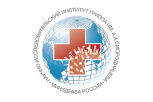
Food biotechnology
Master's degree at the Institute
of Chemical Engineering
The program studies microorganisms, cell cultures of animals and plants, biologically active substances, processes of homeostasis and human nutrition, conversion of raw materials to products using biocatalysts, principles of genetic and metabolic engineering and techniques used to assess the effects caused by genetically modified foods.
How to apply
About
the program
Biotechnology is a globally expanding area of studies associated with both research and production. Food Biotechnology is a branch of food science that applies modern biotechnological methods
Food biotechnology is an essential part of biotechnology aimed at developing new varieties of food involving biological systems in their processing. Numerous biotechnological processes used to create and improve new foods and beverages include fermentation, supplements, plant and animal cultures, and genetically modified foods.
Special attention is paid to the use of specific equipment for studying properties of microorganisms and cell cultures produced using various substances in laboratory and industry, training in engineering calculations of apparatus and equipment used in foods and supplements production, biocatalysis and biocatalytic technologies and methods for quality control of raw materials, half-finished and final products.
Another focus of the program is in-depth studying of such biotechnological processes as manufacturing of beer, low-alcohol drinks and dairy, as well as supplements and conversion of plant raw materials.
Dr. Maxim Mironov
Head of the program
Professor, Doctor of Chemistry
Institute:
Institute of Chemical Engineering
Area of studies:
19.04.01 Biotechnology
Degree awarded:
Master's degree
Branch of science:
Engineering, Technology and Engineering Sciences
Mode and duration of study:
Full-time: 2 years
Language:
English
How to apply
Eligibility criteria:
- Previous education: completed Bachelor’s or Specialist’s degree
- Language of instruction (English) proficiency level: B2 or B1
Documents:
- Passport scan with notarized Russian translation
- Previous education documents (Bachelor’s degree diploma or equal) with notarized Russian translation
- Full transcript of grades with notarized Russian translation
Make the first step
Apply for a consultation with the Institute’s Admissions Committee representative
Prepare the required documents
Note 1: Please consider that, in accordance with the Russian education standards, education documents issued in some countries require legalization and/or apostille verification.
Note 2: Remember that all documents must be supplemented with notarized translations into the Russian language.
Pass the entrance exams
Each applicant must pass one entrance exam in the form of an interview with the program administrator (via Skype/Zoom) or a written test.
Welcome to one of the best universities in Russia
Get your tickets and inform us about your arrival (date, border crossing point) via email at least 10 days before arrival date
About the
institute
Institute of Chemical Engineering is a deep scientific and educational tradition, as well as highly qualified staff with rich experience in solving diverse fundamental and applied problems in the field of modern chemistry and chemical engineering.
Visit websiteModern laboratories
Modern laboratories
In the learning process, our graduate students work on real projects under the guidance of leading scientists and practitioners while acquiring competencies demanded by the labor market
Research infrastructure of the Institute:
- Scientific and Educational Innovation Center for Chemical and Pharmaceutical Technologies
- Laboratory of Fiber Technologies and Photonics
- Laboratory of Medicinal Chemistry and Advanced Organic Materials
- Laboratory for Advanced Research in Petrochemistry, Chemical Engineering and Biotechnology
- Laboratory of Materials and Devices for Clean Energy
- Laboratory of Hydrogen Energy
- Laboratory of Electrochemical Devices and Materials
- Problem Laboratory of Physiologically Active Substances
Our practice-oriented Master's programs employ high-tech equipment and unique technological installations
















Opinions

Said Abushanab
Graduate of the Food Biotechnology program
I came to Yekaterinburg from Egypt and have been studying here for the fifth year. This is a very interesting major, which gives you a profession that allows you to benefit people and their health. I really liked studying at the UrFU Master's program, so after graduating I decided to continue my studies in this area in the university's postgraduate course. All teachers in the Food Biotechnology program have a... More

Dmitry Kolevatykh
Student of the Food Biotechnology program
The fact that this program is taught in English attracted me very much: I thought it would be useful for further work somewhere abroad. Plus, this is a very modern field; food biotechnology is the science of the future. I really like the teaching staff—those are not only teachers from UrFU, but also from other universities, including ones outside Russia. We are having a lot of practice: mainly laboratory work,... More

Svetlana Shatunova
Graduate student
University of Queensland, Brisbane
The program provides an opportunity to significantly deepen your knowledge in the area. Also, the teachers who deliver courses in this area are among the best professionals at the university who help students to better master the courses and develop the required skills. It is also important that students of the Master's program acquire not only theoretical knowledge, but practical experience, too. For example, some... More
Our partners
More than 80% of graduates of our Master's programs get job offers in their degree field, and for a number of programs the percentage of employment in the degree field reaches 100% in the first year after graduation




























